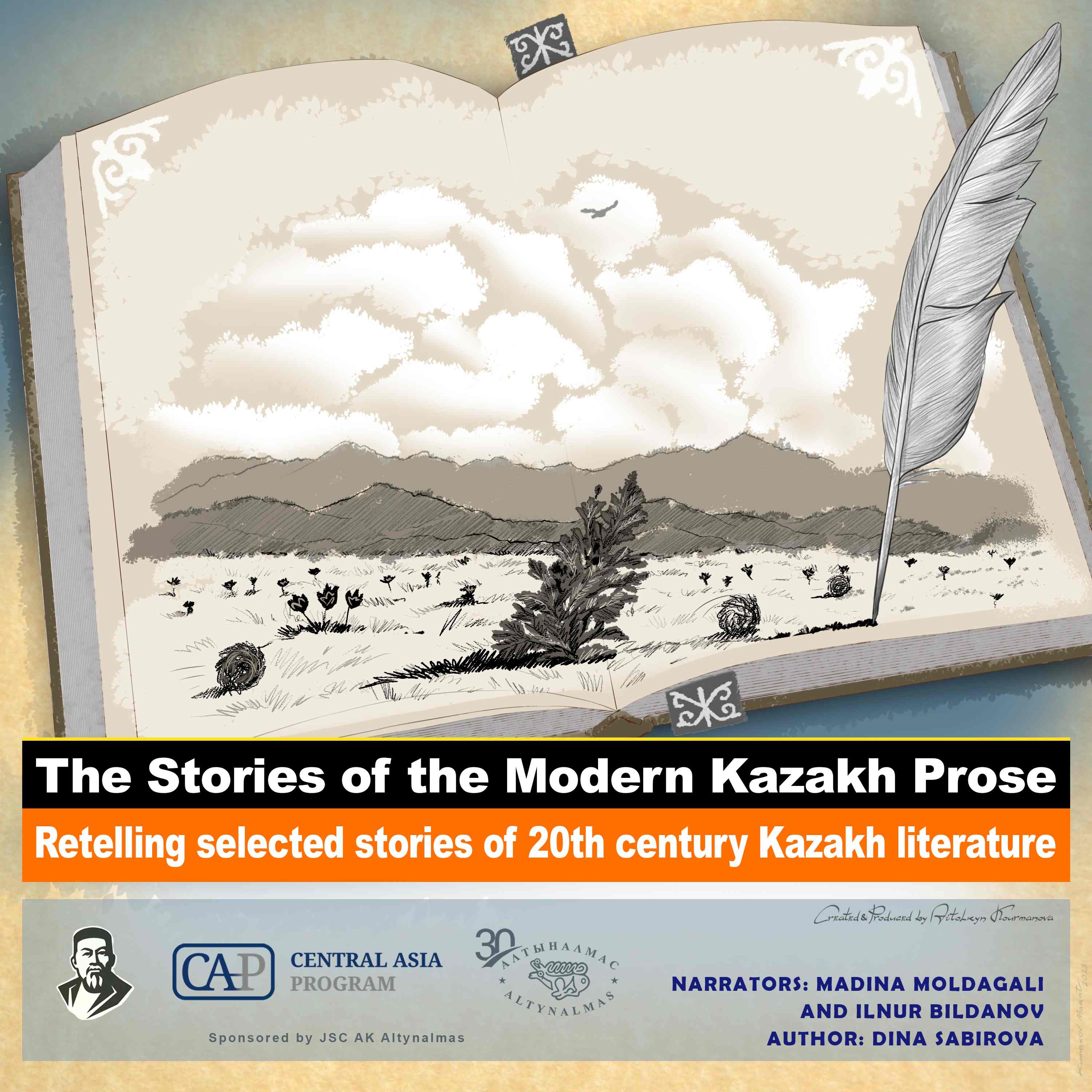Episodes
Mukhtar Magauin is a Kazakh writer, publicist, translator, and researcher of Kazakh folklore. In 1997, he received an international award from the Foundation of Artists and Writers of Turkey “for services to the Turkic world.” The award was presented to him by the then-President of the Republic of Turkey, Suleyman Demirel. Magauin translated into Kazakh a collection of selected stories by Somerset Maugham, as well as Henry Haggard’s novel King Solomon’s Mines.
In the story “Death of a Borzoi”...
Published 12/18/23
Published 12/18/23
Anuar Alimzhanov was born on May 2, 1930, in the village of Karlygash in Taldykorgan region. He is considered one of the most prominent Kazakh writers of the late Soviet period. He wrote not only stories about the contemporary period, but also notable historical novels.
In his story "The Last Madamar", Alimzhanov writes about Kazakh deserts, water and their master, a man named Madamar. We meet this true master only at the end of the story, when he magically appears to save his people by...
Published 11/28/23
Rollan Seisenbayev, born October 11, 1946, in Semipalatinsk, is a prominent contemporary Kazakh writer, playwright, and translator. In addition to his literary activities, Seisenbayev is the founder of the Abai House in London, the Abai International Club, and the international literary magazine Amanat. He is the recipient of numerous international literary awards and is known for his masterful depiction of the effects of the Soviet nuclear tests at Semey on the Kazakh people. In the...
Published 10/04/23
Satimzhan Sanbayev is a Kazakh writer, film actor, and screenwriter. Born into the family of the prominent Kazakh teacher-educator Khamza Sanbayev, in 1967 he was invited to star in the film “The Road of a Thousand Miles.” During filming, he completed his first story, “White Aruana” (White Camel), which was published a year later in Prostor magazine.
White Aruana is fine representation of nature-human relations in Kazakh classic literature. Aruana is almost anthropomorphic: she transforms...
Published 09/27/23
Myrzhakyp Dulatov was born on November 25, 1885. Dulatov's political creed was clearly articulated when, in 1909, he published his first collection of poetry, Oyan, Kazak! (Wake Up, Kazakh!). The copies in circulation were immediately confiscated—and in 1911 he was arrested. Dulatov became one of the leaders of Kazakh reformism and the national liberation movement. In the summer of 1917, he helped to organize the First All-Kazakh Congress in Orenburg. He subsequently became a member of the...
Published 08/09/23
Oralkhan Bokeev (September 28, 1943 – May 17, 1993) was a Kazakh writer, playwright, and journalist. A bright and sensitive writer, a master wordsmith, Bokeev told his stories vividly and with deep knowledge of human nature. The plots of his stories are based on memories of his homeland and the events of his youth. He was proud of and sincerely loved his kind, honest, and hardworking countrymen. His worldview was often expressed in metaphor; each hero of a Bokeev work is a mystery.
The origin...
Published 06/26/23
Mukhtar Auezov (September 28, 1897–June 27, 1961) was a prominent Kazakh writer and an honored academic of the Soviet Union. Auezov's works had a major influence on the development of Kazakh literature. He wrote numerous essays, short stories, and plays (many of which have been translated into other languages) in different genres, but his greatest literary work was an epic entitled The Way of Abai. The latter brought him the prestigious Lenin Prize in 1958. In this episode, we want to retell...
Published 05/30/23
Zhusipbek Aimautov, a teacher by training, served as the editor-in-chief of Abai magazine and the newspaper Kazak tili. He also left a significant literary legacy as the author of the novels Kartkozha (1926) and Akbilek, as well as a number of other works. Akbilek is a psychological novel that was first published in 1927 in the magazine Equal Rights for Women.
Aimautov was accused of counter-revolutionary activities and shot in 1931. His works were banned, so his books were removed from...
Published 04/22/23
Magzhan Zhumabaev is one of the fathers of modern Kazakh literature. Born in 1893 to a wealthy family in North Kazakhstan, he became one of the co-founders of the reformist political movement Alash Orda. Zhumabaev was a highly educated intellectual with wide-ranging interests who believed in the power of education: he spoke Arabic, Farsi, and Turkish and translated such prominent Western and Russian poets as Goethe and Lermontov into Kazakh. His first poetry collection, “Sholpan,” was written...
Published 04/18/23


